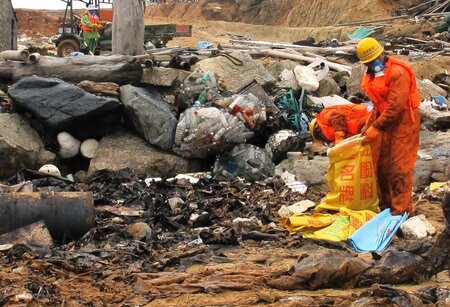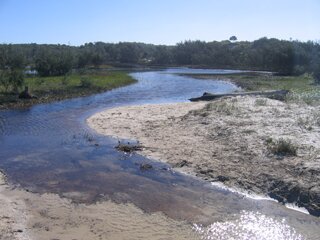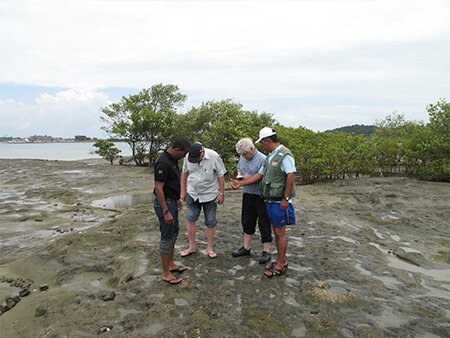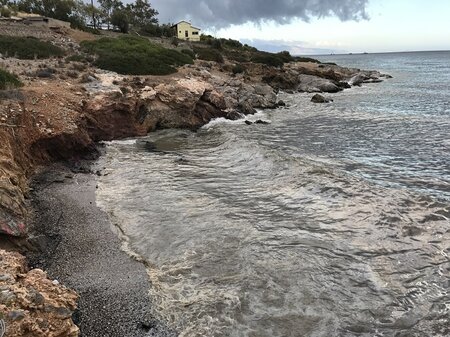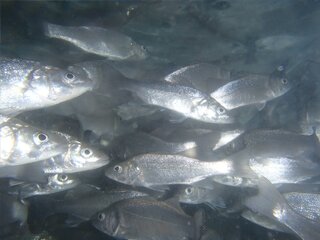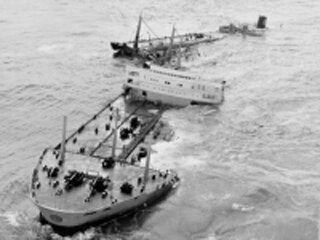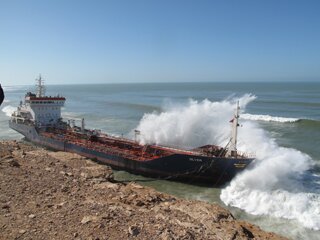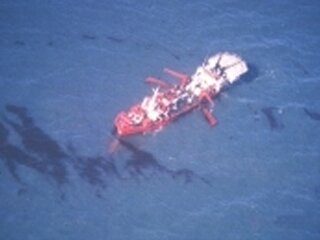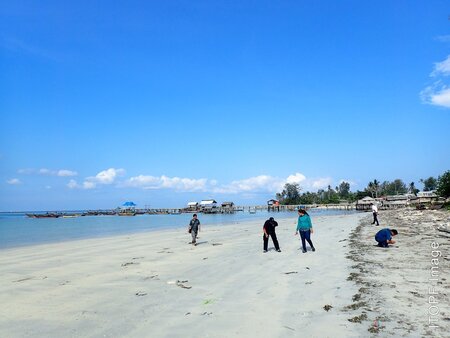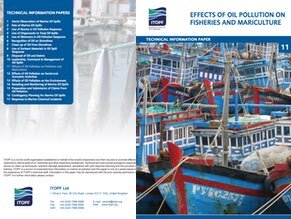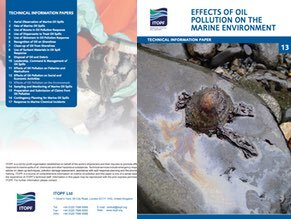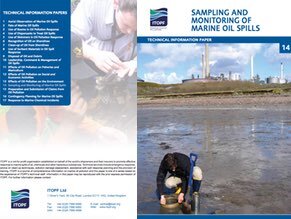Environmental Effects

The effects of oil spills can have wide ranging impacts that are often portrayed by the media as long lasting environmental disasters. Such perceptions are understandable as they are often fuelled by distressing images of oiled birds and other wildlife.
It is true that an oil spill can have severe short term effects, especially when organisms are considered on an individual basis. However, environmental impacts should always be measured in a scientific context and should be appraised at an ecosystem rather than individual level. In other words, it is important (or more representative of long term environmental effects) to base the extent of environmental damage on the effects to ecosystems. For example, has the ecosystem retained its normal functions or how quickly will they resume following an oil spill?
Under normal conditions many of the ecosystems most frequently affected by marine oil spills are accustomed to natural disturbances. For example, shallow coral reefs are some of the most dynamic environments, frequently exposed to the intense forces of typhoons and tsunamis. Disturbances of this nature typically create space for new organisms to settle and grow. In time, natural processes repair damage caused by such events, returning an ecosystem to its previous functions, albeit potentially comprised of different individual organisms. Natural recovery processes are also important in remediating the effects of oil spills. Recovery can be assisted by the removal of oil through well-conducted clean-up operations, and may sometimes be accelerated with carefully planned restoration measures.
How Can Oil Spills Cause Damage to the Environment?
The effects of an oil spill will depend on a variety of factors including, the quantity and type of oil spilled, and how it interacts with the marine environment. Prevailing weather conditions will also influence the oil’s physical characteristics and its behaviour. Other key factors include the biological and ecological attributes of the area; the ecological significance of key species and their sensitivity to oil pollution as well as the time of year. It is important to remember that the clean-up techniques selected will also have a bearing on the environmental effects of a spill.
Oil spills may impact the environment in the following ways:
- Physical smothering of organisms: This is caused by oils with a high viscosity, in other words heavy oils. Smothering will affect an organism’s physical ability to continue critical functions such as respiration, feeding and thermoregulation.
- Chemical toxicity: This is characteristic of lighter chemical components which are more bio-available, ie absorbed into organs, tissues and cells, and can have sub-lethal or lethal toxic effects.
- Ecological changes: This is caused by the loss of key organisms with a specific function in an ecological community. They can be replaced by different species undertaking similar functions in which case the implications for the ecosystem as a whole may not be severe. However, more detrimental is the niche in the community being replaced with organisms performing completely different functions thereby altering the ecosystem dynamics.
- Indirect effects: Loss of shelter or habitat through oiling or clean-up operations.
What Characterises Recovery for the Marine Environment?
Extensive research and detailed post-spill studies have shown that even major oil spills will rarely cause permanent effects.
Marine ecosystems have high natural variability and are subject to ever-changing environmental phenomena such as storms, climatic anomalies (eg El Niño) as well as anthropogenic pressures. Furthermore, marine organisms have varying degrees of natural resilience to these pressures on their habitats. This natural variability means it is unlikely that exact pre-spill conditions will be reached. It makes determining the point of recovery following an oil spill, and the time it will take, difficult to accurately predict.
It is generally accepted that recovery is reached when a community of plants and animals characteristic of that habitat are established and functioning normally.
Explore Documents on Environmental Effects
A case for incorporating Environmental Social & Governance (ESG) into spill response
Over recent years the shipping industry has begun to discuss issues relating to sustainability, often within the framework of Environmental, Social and Governance (ESG). In the context of ship-source pollution response, there is debate over how ESG can be practically incorporated into this emergency response sector, and concerns that it’s inclusion may lead to increased bureaucracy and higher workloads at moments when time is already at a premium. This paper therefore examines the feasibility and usefulness of monitoring sustainability during maritime pollution response, and provides practical recommendations on how ESG considerations can be tailored to the spill response sector.
Categories: Environmental effects, Economic effects, Planning & operations, Papers
Approaches to environmental damage claims (2009)
This paper examines the differences between the approaches to environmental damage compensation under the US 1990 Oil Spill Pollution Act and the international regime.
Categories: Environmental effects, Compensation, Damage Assessment, Papers
Are post-spill environmental studies becoming the norm? (2015)
This paper uses information from ITOPF attended incidents to look at trends in conducting post-spill studies, and offer a number of possible reasons for these trends; including a general heightened awareness of environmental issues leading to a shift in attitudes and expectations as well as legislative changes. The paper will also look at the implications of these trends for those involved with such studies and re-examine the ideal drivers for scientifically robust post-spill studies.
Categories: Environmental effects, Papers
Does cleaning oiled seabirds have conservation value? Insights from the South African experience with African Penguins (2007)
Although there is general consensus among investigators that large numbers of seabirds are killed as a result of oil spills, there is disagreement, mostly in the northern hemisphere, about the extent to which oil mortality is biologically significant to local, regional and global populations.
Categories: Response Techniques, Environmental effects, Papers
Environmental damage: Changing perceptions and future outlook (2018)
Over the last fifty years, increased global awareness of environmental issues has led to growing recognition of environmental stewardship as an essential component of economic development.
Categories: Environmental effects, Papers
Fishing and harvesting bans in oil spill response (1999)
Fishing and aquaculture harvesting bans are increasingly used as an oil spill management tool, with the intention of protecting public health and consumer markets. Such bans are easily imposed, but a rational basis is needed for maintaining and lifting them. Scientific criteria offer the best prospect for administering fishery bans in a consistent way, but recent marine pollution incidents reveal contradictions in their application.
Categories: Environmental effects, Papers
From the Torrey Canyon to today: A 50 year retrospective of recovery from the oil spill and interaction with climate-driven fluctuations on Cornish rocky shores (2017)
This paper highlights lessons learnt from observations stretching back 60 years, both before and after the Torrey Canyon spill, for rocky shore monitoring, especially the need for broad-scale and long-term monitoring to separate out local impacts (such as oil spills) from global climate-driven change.
Categories: Environmental effects, Papers
Ships and the marine environment (2001)
Ships interact with the environment in which they operate in many ways. Shipping casualties provide the most visual manifestation of the interaction between ships and the marine environment, especially if they result in the death of crew or passengers, or in the release of hazardous cargo or fuel.
Categories: Environmental effects, Papers
The adaptation of mariculture practices in response to spilled oil (1999)
Oil spills may contaminate both mariculture facilities and livestock. Prevention of oiling should therefore be afforded a high priority. A number of traditional spill response measures but also self-help response options are open to mariculturalists, that may avoid or limit the effects of spilled oil. The advantages and drawbacks of each of these approaches in the context of oil spill response are discussed.
Categories: Response Techniques, Environmental effects, Papers
The Sea Empress oil spill: Environmental impact and recovery (1999)
72.000 tonnes of light crude oil were released from the Sea Empress at the entrance to Milford Haven, South Wales over a 7 day period in February 1996, in an area of exceptional environmental value for wildlife, tourism and natural beauty. Natural factors coupled with effective clean-up at sea and on shore, minimised environmental impact.
Categories: Environmental effects, Spill Response, Papers
The use and misuse of SCAT in spill response (2017)
In this paper we review the use and misuse of SCAT in several recent smallscale incidents and discuss the implications for the wider implementation of SCAT moving forward.
Categories: Environmental effects, Papers
TIP 11: Effects of oil pollution on fisheries and mariculture
This paper describes the effects of ship-source oil pollution on fishing and mariculture and provides guidance on response measures and management strategies which may help to reduce the severity of oil spill impacts. Damage to other economic resources is considered in a separate Technical Information Paper.
Categories: Environmental effects, Economic effects, Technical Information Paper (TIPS)
TIP 13: Effects of oil pollution on the marine environment
This paper describes the effects of ship-source oil spills and resultant clean-up activities on marine flora and fauna, and their habitats. Particular attention is devoted to discussing the complex interactions between oil and biological systems, which have been the subject of diverse studies over many years. Separate ITOPF papers consider the specific effects of oil on fisheries and mariculture and on wider human activity.
Categories: Environmental effects, Technical Information Paper (TIPS)
TIP 14: Sampling and monitoring of marine oil spills
This paper provides a broad overview of the monitoring and sampling procedures that can be used for qualitative and quantitative monitoring of oil contamination. While qualitative analyses can confirm the source of oil contamination, monitoring programmes are often concerned with the quantitative changes in hydrocarbon levels over time. Guidance on analytical best practice is given and common terminology is explained. However, the techniques and observations required to monitor specific ecological or biological effects and to monitor contaminants in the air are beyond the scope of this paper.
Categories: Environmental effects, Planning & operations, Technical Information Paper (TIPS)

